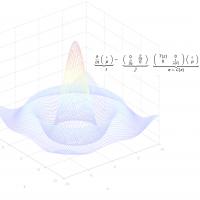Abstract of the course
This course presents a system control-oriented approach to modeling, analysis, and control of distributed parameter systems (DPS), i.e., systems governed by partial differential equations (PDEs). This class of systems is more and more encountered in control engineering due to the increased use of complex, heterogeneous and smart materials in applications. Analysis and control of DPS is thus of high theoretical and practical interest, especially when considering the evolution of computing capacities that allows to deal with very high order systems. The formalism used in this course is the port-Hamiltonian framework. Well-known in control of nonlinear systems governed by ordinary differential equations, this formalism based on the notion of energy and power exchanges has been extended to distributed parameter systems. The aim of this course is to show how this formalism can be advantageously used to study stability and derive simple (boundary) control laws for the stabilization of un-(or weakly) damped (linear) distributed parameter systems.
Topics
The first part of the course is devoted to modelling. More precisely, it focuses on the derivation of structured models accounting for power exchanges occurring within the system and with its environment. In the second part, existence of solutions, boundary control and stability of linear port-Hamiltonian systems are studied. The third part is concerned with control design. The course ends with a tutorial aiming at applying the different concepts on a practical and realistic example in order to illustrate with simulations the interest of such an approach. The different parts of this course are also illustrated through physical examples such as transmission lines, beam equations, linearized shallow water equations, Korteweg-de Vries equations, reaction-transport problems including chemical processes, population dynamics, etc.
Target audience
This course is devoted to engineers and applied mathematicians willing to have an introduction to the modelling and control of distributed parameters systems using the port-Hamiltonian framework.

